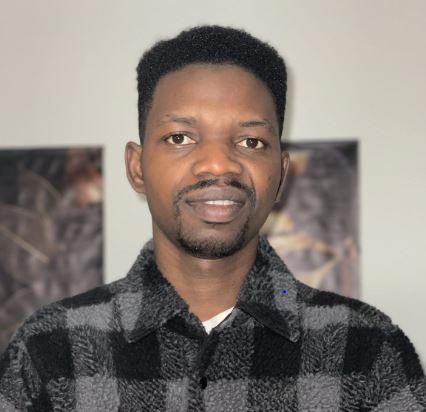
By Ayo Onikoyi
In a dedicated effort to improve global health outcomes, Abidemi Bello, a fourth-year PhD candidate at Purdue University, West Lafayette, is conducting groundbreaking research aimed at the discovery of potent therapeutics for the treatment of HIV.
With the HIV epidemic continuing to pose a significant global health challenge, his work is positioned at the forefront of efforts to develop more effective treatments, potentially transforming the landscape of HIV therapy and contributing to the broader mission of eradicating the disease.
Abidemi’s academic journey is marked by exceptional achievements. He graduated with a First-Class degree in Chemistry from the Federal University of Technology, Akure (FUTA), in 2016, and later earned a Distinction in MSc Analytical Science and Instrumentation from the University of Warwick, Coventry, in 2020, under the sponsorship of the Commonwealth Shared Scholarship. His academic excellence, combined with a deep passion for addressing global health challenges, has driven his focus on contributing to the field of HIV drug discovery.
In a recent interactive session, Abidemi highlighted the ongoing severity of the HIV/AIDS crisis, underscoring the fact that approximately 40 million people were living with HIV worldwide by the end of 2023, according to data from the World Health Organization (WHO). Alarmingly, an additional 1.3 million new cases were recorded in 2023, with projections estimating another 1.2 million new cases in 2024. These staggering figures emphasize the urgent need for continued innovation in HIV treatment, a challenge that Abidemi is committed to addressing through his research.
Over the years, numerous antiretroviral drugs have been developed to combat the HIV epidemic. Among them, Darunavir, a potent HIV protease inhibitor, stands out for its efficacy against a wide range of HIV variants. Incredibly, Abidemi has the privilege of working in the lab of Professor Arun Ghosh, the scientist who discovered Darunavir, a breakthrough that has had a profound impact on HIV therapy worldwide.
Given the proven effectiveness of Darunavir, Abidemi’s lab has received significant funding from the National Institutes of Health (NIH) to engage the development of a new generation of anti-HIV agents. This critical research aligns with the goals of the United Nations Joint Program on HIV/AIDS (UNAIDS), specifically its Fast-Track Agenda, which aims to end the HIV/AIDS epidemic by 2030.
In pursuit of this ambitious goal, Abidemi is at the center of efforts to harness the power of synthetic organic chemistry to develop new reactions and synthesize more potent analogues of Darunavir. To date, he has successfully synthesized over thirty new compounds, which are now being evaluated as potential ligands in the discovery of a new HIV drug.
In addition to his work in synthetic chemistry, Abidemi is leveraging computational approaches to complement his experimental findings. By utilizing In Silico simulations, he can evaluate the interaction of newly synthesized ligands with HIV protease, one of the key enzymes responsible for the virus’s replication. Through molecular docking and dynamics simulations, he is able to predict and optimize the behavior of these compounds within the active site of the enzyme, increasing the likelihood of discovering highly effective treatments.
By combining the strengths of synthetic organic chemistry with advanced computational techniques, Abidemi is making a significant contribution to the future of HIV treatment. His work not only has the potential to push the boundaries of current HIV therapy but also plays an important role in the broader effort to achieve UNAIDS’ goal of ending HIV/AIDS by 2030.
Disclaimer
Comments expressed here do not reflect the opinions of Vanguard newspapers or any employee thereof.